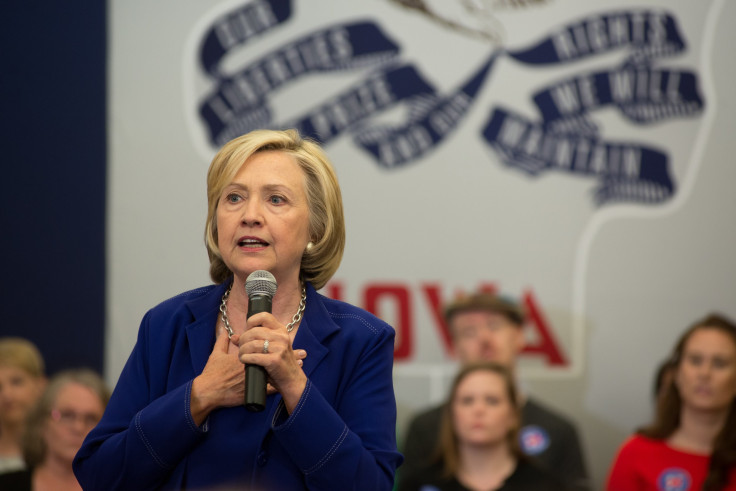Hillary Clinton's Economic Agenda To Focus On Boosting Middle Class Income: Reports

Democratic presidential front-runner Hillary Clinton will outline her economic agenda in a speech in New York Monday, placing a strong emphasis on boosting middle class incomes, according to reports.
In the speech, at the progressive university The New School in lower Manhattan, Clinton will call for greater wage equality, tax hikes on the rich and raising the minimum wage. In addition, she will argue for policies to encourage workforce participation, especially among women, including paid leave and paid sick days, better child care services and access to education, according to a preview of the speech the campaign gave to the Huffington Post.
In addition, Clinton will urge business to move away from what an aide called “quarterly capitalism” and more towards long-term sustainability.
Another campaign official told the Washington Post that Clinton is to argue that “the measure of our economic success should be how much incomes rise for middle-class households, not an arbitrary growth figure.”
Clinton aims to position herself between Democratic competitor Sen. Bernie Sanders, whose platform is focussed more on redistributing wealth, and Republicans who argue for tax cuts for the wealthy, a policy her aides described to the Post as dated, trickle-down economics from Ronald Reagan’s presidency.
Clinton will have to walk a fine line in her speech when it comes to President Barack Obama, who she served under as Secretary of State. While aides told Politico that she will praise the president for dragging the economy back from the brink of a depression in 2009, the primary focus of her speech will be middle-class incomes that have barely outpaced inflation over the last four decades, a problem she will describe as the defining economic challenge facing the next president.
This could be seen as an implied criticism of Obama's economic record, which Clinton will be keen to avoid, as many of the president's policies are strongly supported by the Democratic base.
© Copyright IBTimes 2024. All rights reserved.












